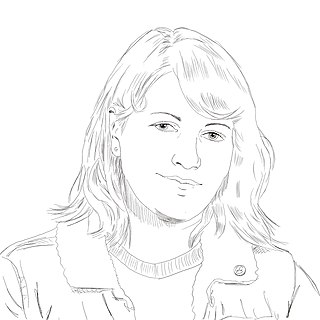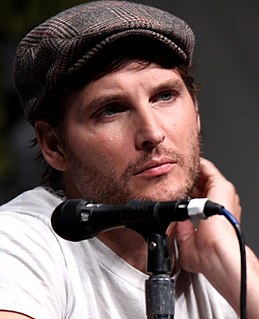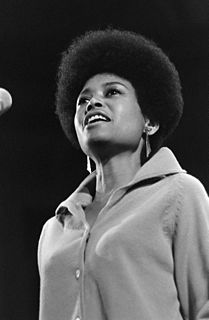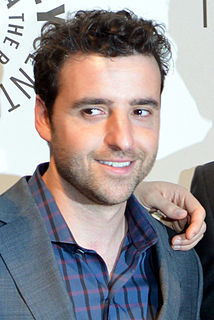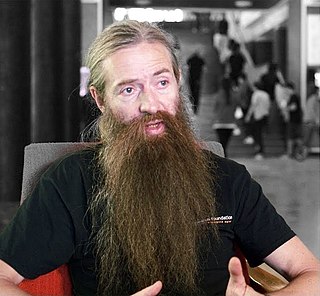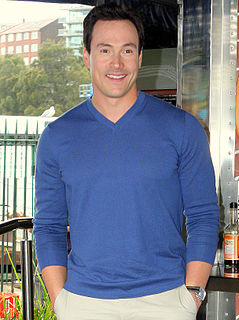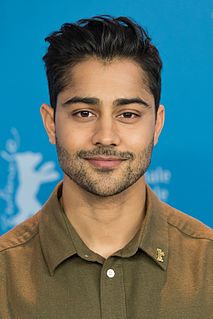A Quote by Alan Tudyk
Gareth [Edwards] was very much about including everyone in what we were making, so he would cut together different scenes to show us what we were making. And the crew, cast, everyone would go into a theater there at Pinewood Studios and watch 10 minutes of what we were making. It was always so exciting. It looked amazing, and the music was huge.
Related Quotes
I just always liked the company. The people who hung around her were amazing storytellers, whether it was actors or crew. They were just exciting people. And I knew that they were different when I would go see a friend or stay at someone else's house. It just wasn't as cool. So I always loved the theater, and that's where I started: at a theater up in Canada.
The industry has changed in big ways. When I started making movies, the studios were not all owned by huge conglomerates, so the decisions were made in a very different way. Over the years, I've watched both the rise and the decimation and fall of the DVD as a portion of where you could generate revenue from making this kind of content. We've seen this change in the balance sheet on the international side of the ledger; it's now a much bigger percentage than it is on domestic, even though movies would have been previously really domestically driven.
When we were making it [Star Wars], none of the effects were in. So the first time, I thought it was, you know, that - I mean, we were surrounded by English crew members that could hardly keep themselves together. They were, "Here comes the guy in the dog suit." They made fun of us, which was OK. But the first time I was sitting in a theater, and I saw all the effects in, and the big ship flew over the audience, and the sound rumbled, I pretty much thought we were close to home.
In the old days when I first was coming up, you would turn up on set in the morning with your coffee, script, and hangover and you would figure out what you were going to do with the day and how you were going to play the scenes. You would rehearse and then invite the crew in to watch the actors go through the scenes. The actors would go away to makeup and costume and the director and the DP would work out how they were going to cover what the actors had just done.
I think I gave indications early on that mine wasn't just going to be a commercial, er, career. If that were the case, then the first record would have been 10 versions of 'Loser.' I always thought it would be interesting if there was no such thing as gold and platinum records, or record deals, and people were just making music. What would the music sound like?
I'd be at someone's house or be up on the roof all day and I'd get lonely - stir crazy - and talk radio became this soothing voice in my life. But the idea that I was making $10 an hour and stacking drywall while these guys were making a few hundred thousand, and they were having a party, and there were Playmates and there were good times, I just couldn't imagine it.
At that time, 73 and 74, I became aware that there were a number of us making instruments. Max Eastley was a good friend and he was making instruments, Paul Burwell and I were making instruments, Evan Parker was making instruments, and we knew Hugh Davies, who was a real pioneer of these amplified instruments.
I don't know when we made [10 Things I Hate About You] that we ever thought it would last in popularity as long as it has, but I think that speaks to the strength of the bond of the cast when we were making it. I think you can tell that we adored each other and that we were real friends. To this day, Joe Gordon-Levitt is a good friend, and obviously Heath [Ledger] was a great guy.
Everything that goes into making a film, when it's the finished product, us as the actors look at the film and go: "Oh man, OK, on that day we were doing whatever the circumstances were on that day...." So much goes into it and it's all so incredibly calculated that the behind-the-scenes chemistry that exists between all of us is sometimes forgotten - you can't act that. We've all come together and held hands through each of the processes that I've been a part of.
When I first started out and would go on pitch meetings, there was always this kind of eye-roll that would come with pitching a horror movie when you were dealing with the studios. Unless it was viewed as a cheap product that could turn a lot of profit, there wasn't a lot of interest in making it good.




